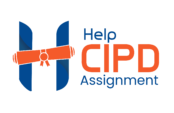7LTD Learning and Talent Development
- September 30, 2021
- Posted by: admin
- Category: CIPD Level 7

The 7LTD Learning and Talent Development module is an optional level 7 Advanced Diploma in Human Resource Management module. It is worth 15 credits and includes 75 hours of guided learning.
Purpose and Aim of the Module
Learning and development are critical components of talent management. The unit is recognized and acknowledged as an important lever in achieving social, economic, and cultural goals. It also ensures that the goals of the government, organizations, and individuals are met.
The potential impact of learning and development in formulating and agreeing on aspirations, ambitions, and objectives is perhaps less recognized, but equally important. The role of learning and talent development in goal formulation and achievement is seen as a core foundation and component of this module.
The contextual nature of notions of talent, as well as their connections with national and organizational policy and strategies aimed at promoting similarly contextual notions of success, are also important.
As such, the purpose of this module is to foster a critical understanding of the potential and limitations of learning and talent development policies and strategies for formulating and achieving goals. This can be done at the national, organizational, group, and individual levels, allowing for the development of intellectual, social, professional, and personal skills necessary for effective performance in professional roles.
Finally, the module is intended to teach students how to critically reflect on theory and practice from an ethical and professional standpoint. Furthermore, it investigates the implications for professional practice while offering opportunities for applied learning and continuous professional development.
Who is suited for this Module?
This module is appropriate for those who:
- Have the duties and responsibilities for making human resource decisions within an organization. They can be operational, tactical, or more strategic in nature.
- Are you an HR professional who works in a team or in an HR functional management role and wants to advance and develop your career?
- Have responsibility for HR functions and activities in an organization that does not have a specialist function. They should enroll in this module in order to specialize in their activities.
- Are self-employed or employed consultants who want to help businesses achieve their objectives.
- Have aspirations for a career in human resources and CIPD professional membership. You must complete this module in order to obtain CIPD professional membership.
What are the Learning Outcomes?
After completing this unit, students will be able to:
- Examine and evaluate the formulation and implementation of learning and talent development processes. These strategies can be used to define and achieve current and future levels of effectiveness at the national, organizational, group, and individual levels.
- Assess the potential and appropriateness of a wide range of learning and talent development strategies, policies, and methods in relation to relevant contextual factors.
- Direct the development, introduction, and implementation of learning and talent development strategies, interventions, and activities.
- Diagnose and manage learning and talent development responses to issues and problems in an efficient and collaborative manner with key internal and external partners and stakeholders. They should also ensure that everyone understands their role and how they can contribute to the agreed-upon solutions.
- Critically assess and influence the politics of learning and talent development policy and practice in a variety of contexts.
- Conduct themselves ethically and professionally, demonstrating a commitment to equal opportunity and diversity in learning and talent development, as well as ongoing personal and professional development.
What is the Assessment Criteria?
Summative assessment will be used to assess at least 50% of the learning outcomes for this module. The remaining learning outcomes are assessed through activities such as teaching, learning, and formative assessment. Formative assessment activities may include the following:
- Examinations
- Projects
- Work activities that are integrated
- Assignments
- Reports
- Exemplifications
- Presentations in groups and individually
- Viva Voce
Furthermore, competency-based assessments may be used, but only in assessment centers that have been approved for the method. Assessors must also be occupationally qualified.


